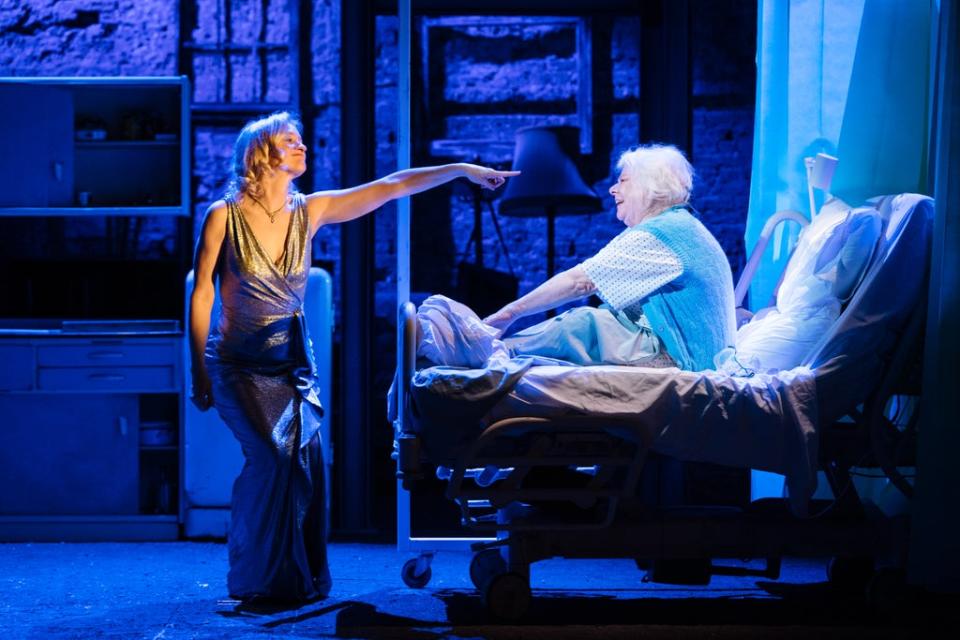House of Shades at the Almeida review: A confused mix of family drama and political screed

What a disappointment. Beth Steel’s much-anticipated, much-delayed play is a confused mix of family saga, melodrama and political screed. At its core is an affecting, layered performance from Anne-Marie Duff as the matriarch of a Midlands working-class family, whose lives we follow from 1965 to 2019. Blanche McIntyre’s baggy production features lots of people explaining Labour politics, female disempowerment, and – obliquely - Brexit to each other, but can’t unscramble the script.
We’re in a British manufacturing and mining town, unidentified but clearly Nottingham. Duff’s Constance has three children – twins Agnes and Jack, and Laura, who has learning difficulties – with stolid shop-steward Alastair (Stuart McQuarrie). She cleans her front step every day but dreams of a life of showtunes and Bette Davis quips. Jack wants to be a communist, Agnes wants to be independent. It’s not too much of a spoiler to say that neither they nor Constance get what they want. In any case, kitchen disagreements about Harold Wilson are interrupted when Laura is revealed to be pregnant.
The horrible reverberations of what follows sound down the generations. But sporadically, as if Steel only occasionally remembers that she has to break up the political arguments by referring back to it. Meanwhile, family members fight and switch political sides during the Winter of Discontent in 1979, industrial action in 1985, the dying days of Tory rule in 1996 before Tony Blair’s ascent and the brave new Conservative world of payday loans and zero-hours contracts in 2019.

The extremes of the family drama, which include physical abuse and an elusive suggestion of incest, sit oddly alongside the clunky, discursive political debate. “As it happens, I think this ‘New Labour’ is in with a chance,” says Michael Grady-Hall’s Jack in the 1996 segment. Well, thanks for that Jack. Any ideas on the 2024 vote, as I’d like to put a bet on?
The kitchen-sink realism is undercut by bizarre flights of fancy. Alistair’s death is heralded by a chatty vision of NHS founder Nye Bevan: adult Agnes watches her childhood self follow her father into the grave. The play references Greek drama and is supposed to plug into contemporary politics. But it mostly feels like a rehash of the decades of recrimination and anguished self-pity that will be familiar to any regular Labour voter.
Steel won this newspaper’s Charles Wintour Award for Most Promising Playwright in 2014 for her wonderful mining-industry drama Wonderland. Sad to say, there’s little of that play’s richness and vigour here. Duff’s expressive face and skittish emotions are as watchable as ever, and McQuarrie brings neat, beaten-down understatement to Alastair.
The cast is strong. But the play is weak, and overlong at almost three hours, and the director, McIntyre, seems to have just waved it all through without addressing the problems. Steel was one of the most lucid and interesting people I spoke to about the future of theatre during lockdown. I was looking forward to this. What a shame.
Almeida Theatre, to June 18, almeida.co.uk


